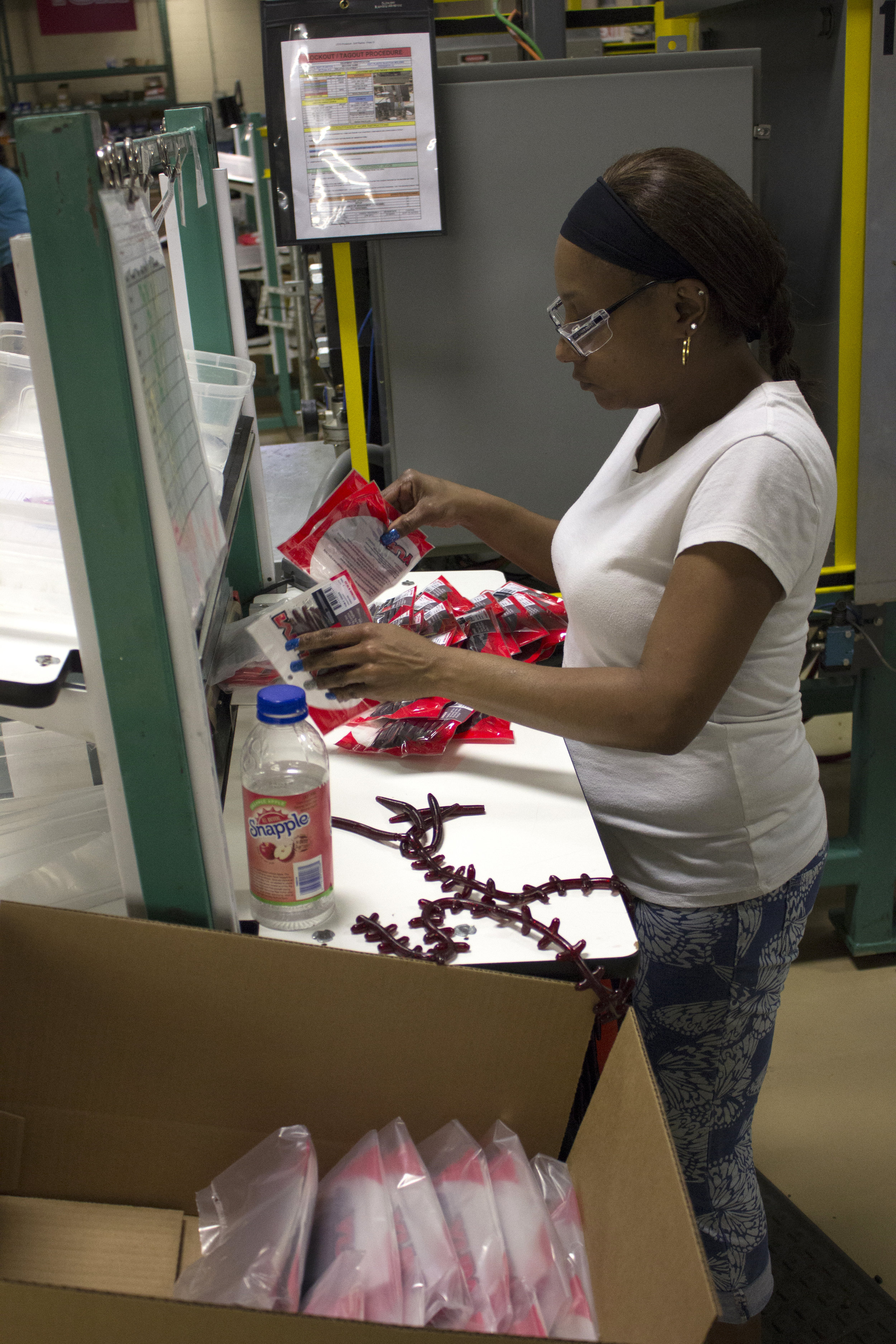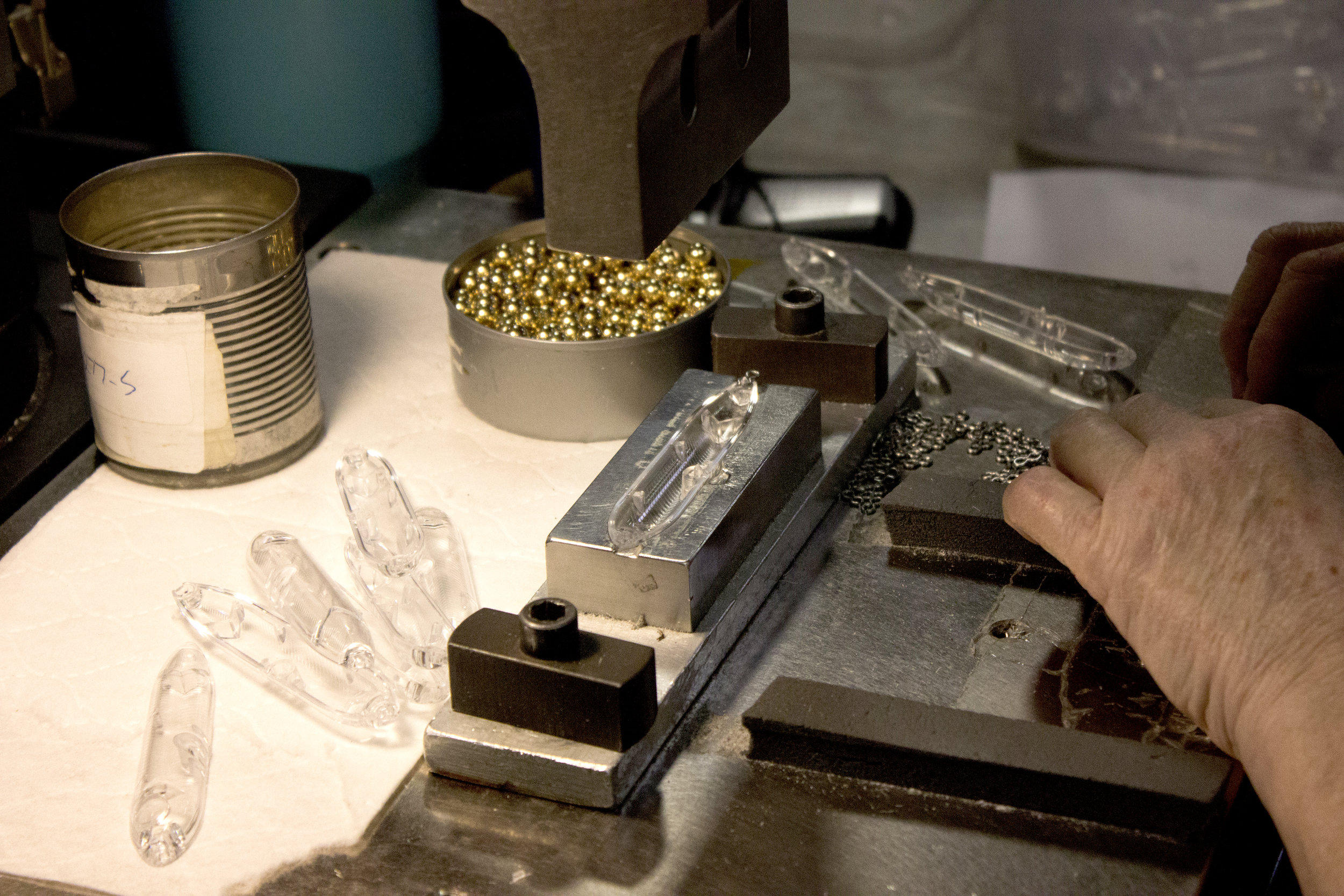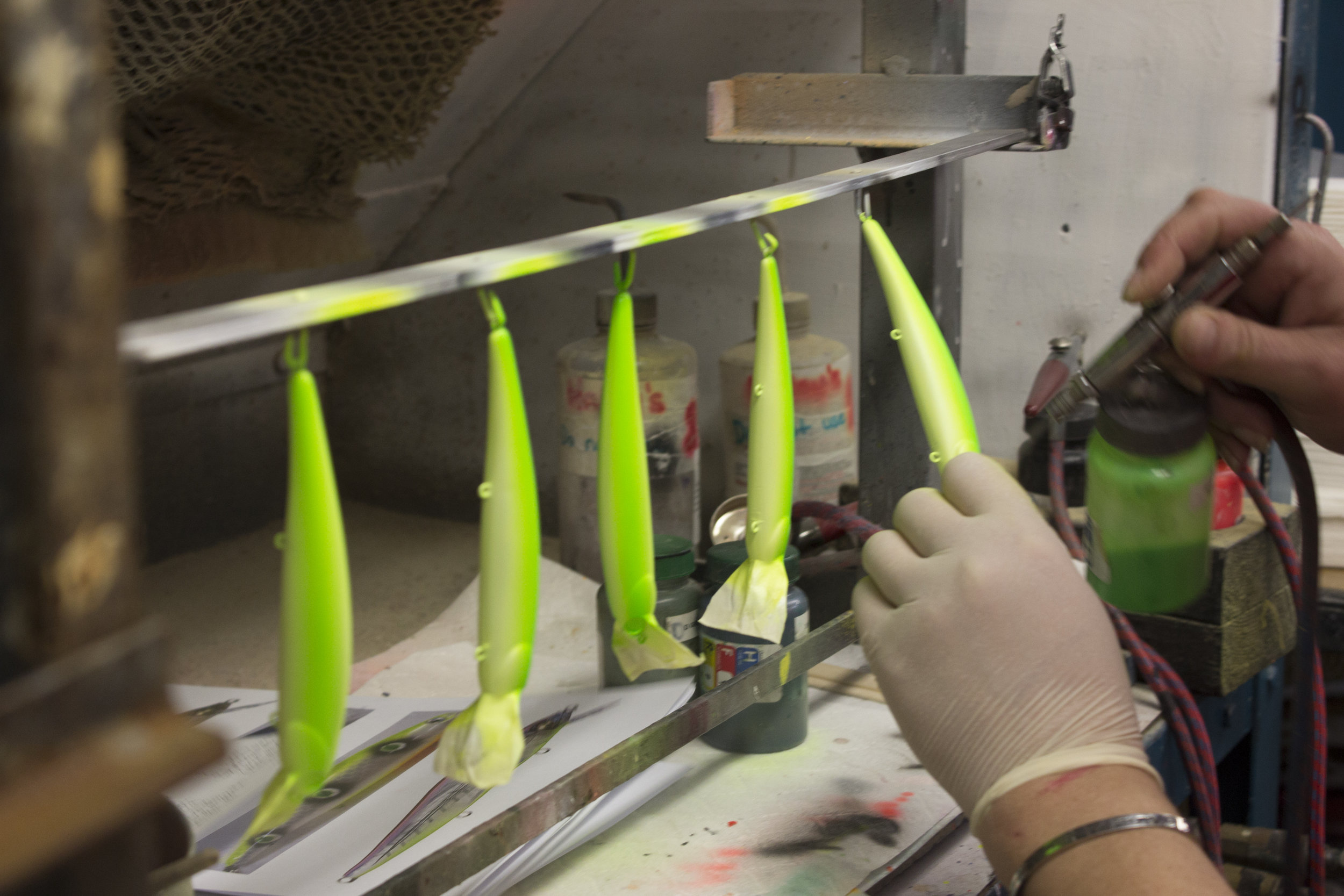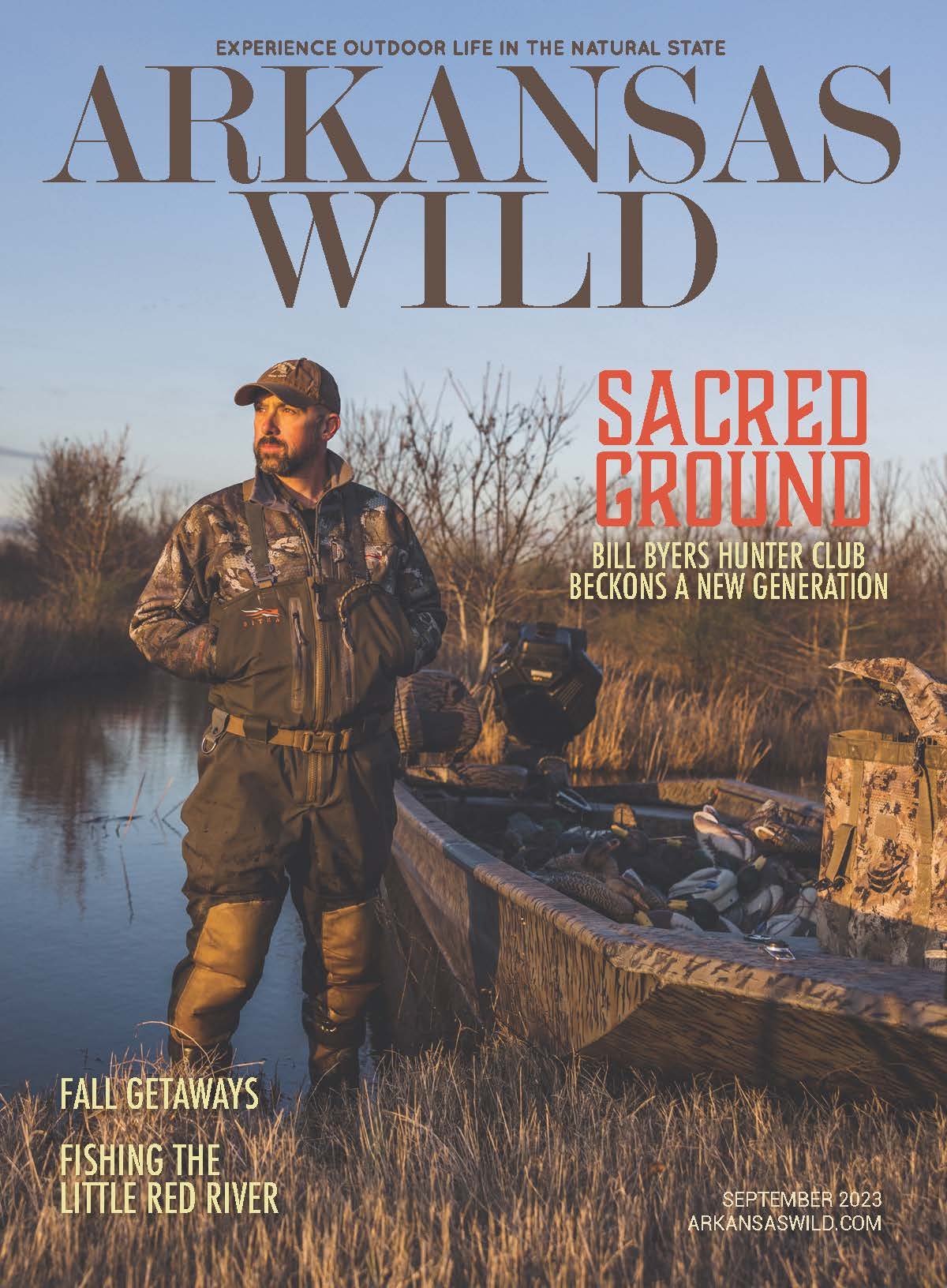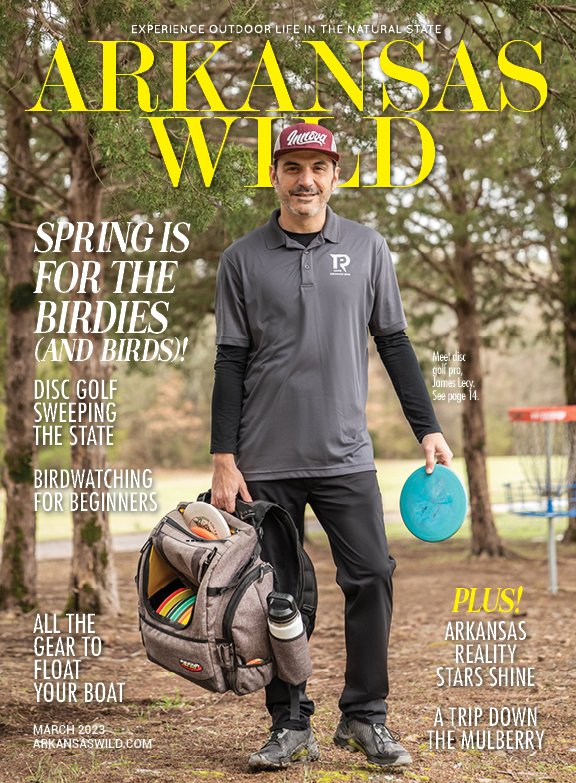Hooked on Arkansas
Fort Smith lure manufacturer stocks the world’s tackle boxes
By Dwain Hebda
A rack of bobbers dries prior to packaging at the Pradco facility in Fort Smith. - Photo Courtesy of: Pradco
Early afternoon on a recent weekday, Bruce Stanton is in a familiar mode: Doing six things at once. The Tennessee native and longtime vice president/general manager of Pradco’s fishing division is headed to a major fishing tourney where he’ll work the room among the best pro anglers in the world on the merits of his company’s products.
Then, he’ll shake hands with dozens of other regular Joes, the backbone of any outdoor manufacturer, telling some what’s new and reminding others that the company still makes the models that put Pradco on the map. It’s not the most efficient way a global lure-maker reaches its audience, but the personal touch still has its place.
“Yeah, it’s just like Coke and Pepsi or Ford and Chevy,” Stanton said. “You see brand loyalty and that’s part of what we do as marketers. We’re building our brand communities. We’re speaking to customers the way they want to be spoken to and building that brand loyalty.”
“Once someone starts using your brand, they’re probably going to stick with it unless you give them a reason not to.”
Such tactics are challenging enough for just one brand, let alone the 16 brands of lures the company has collected through the years, manufactured tip to tail or in part at the company’s 120,000-square-foot Fort Smith facility. All told, it’s a catalogue 4,000 SKUs deep, nearly six decades wide and still evolving to meet the changing times.
“When I came to Pradco 23 years ago, probably 95 percent of our business was hard plastic lures, brands like Rebel, Bomber and Heddon,” Stanton said. “Between Booyah and War Eagle, we have grown to be the No. 1 market share in the United States in the spinnerbait category. We’ve invested heavily in those two brands.”
“Over the last 20 years the market has shifted more toward consumables, soft plastics and what we call wire bait – spinnerbaits, buzzbaits and jigs, predominantly. We weren’t really in soft plastics, so we had an organic launch with Yum in 2002. It probably took six or seven years, but it became our biggest brand.”
The operation dates back to 1962 when George Perrin decided to turn his Fort Smith plastic injection molding company to fishing lures. He named it Rebel Lures after then mascot of Fort Smith Southside High School, which also opened that year and at which Perrin’s daughter was a member of the first graduating class.
In 1980, Perrin sold to EBSCO Industries of Birmingham, Alabama, parent company of Pradco Outdoor Brands. The new ownership quickly began assembling competitors, starting with Cotton Cordell Lures of Hot Springs and Michigan’s Heddon Lures, the oldest fishing lure in the world, founded in 1894.
Today, Pradco is a major player, selling in more than 60 countries and stocked in the behemoths of the sporting goods universe, including Walmart, Bass Pro Shops, Cabela’s, Dick’s Sporting Goods and others. Amazon and the company’s own online presence fatten sales appreciably.
At its size, the company can afford to hang on to legacy models, even as it pushes the envelope for a new generation of anglers, which, Stanton said with pride, is exactly what it does.
“In our Heddon brand, the Zara Spook is one of the most famous lures in the world,” he said. “The original Spook has the old-style, screw-in hook hangers, the old-style O’Shaughnessy hooks. There’s no split rings; it just looks like something that was made in the 1940s. We still make that and there are certain consumers that really like that.”
“There’s also guys that fish tournaments and younger guys that want split rings and updated hooks and updated lure patterns with realistic eyes and holographic patterns. So we have a full line of Super Spooks and One Knocker Spooks that preach to the new audience. The volume’s there where you can do both.”
As for the future, Stanton said the company’s competitive spirit is as keen as ever and they continue to look for opportunities to grow via acquisition. But, he’s quick to add, it’s the company’s Arkansas roots that are the key ingredient for the company’s longevity.
“We fish; it’s our lifestyle. It’s what we do,” Stanton said. “We’re businessmen, but fishing’s very important to us. And when you can live in a rural state like Arkansas with so many great rivers and lakes and creeks, I mean, it kind of sets the tone for your business.
“My office is full of people that, man, they live it. Some of them fish tournaments, some of them can’t wait to get in a kayak, some of them can’t wait to get to go wading. We’re outside and we’re fishing. It just helps us make a better product.”

